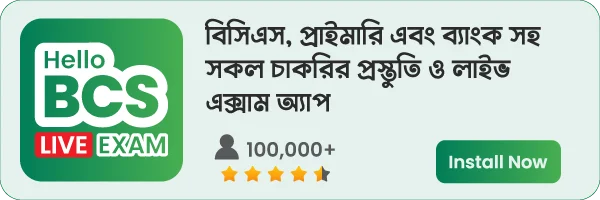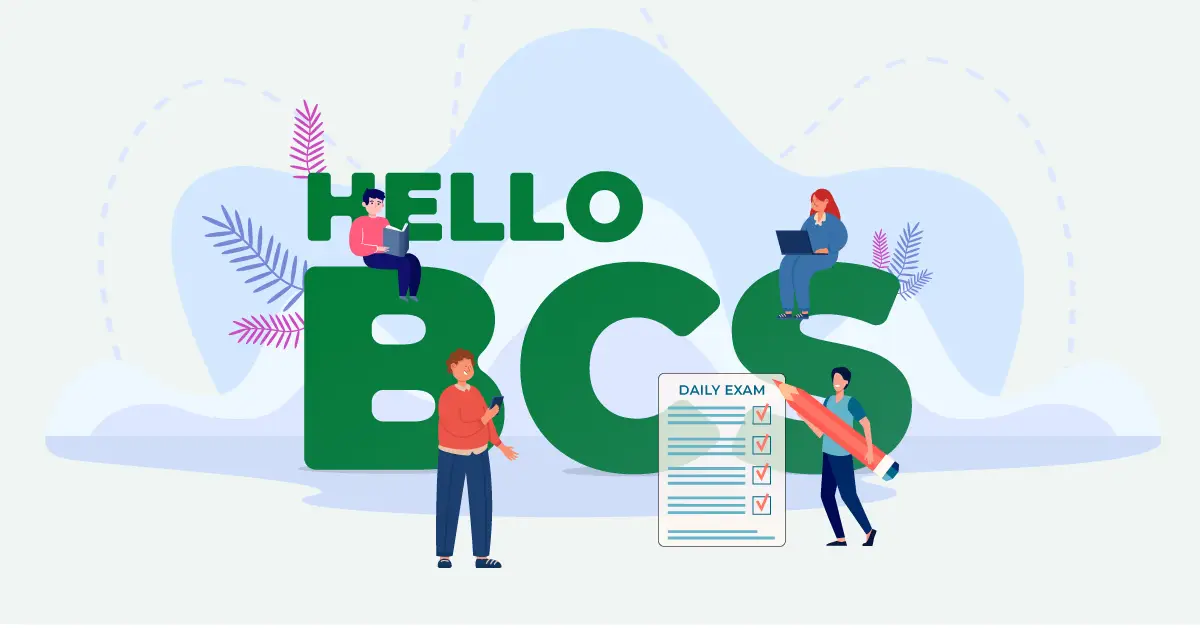Verb কাকে বলে?
Verb হলো এমন একটি word যা দ্বারা কোনো কিছু করা, হওয়া বা থাকা বুঝায়। যেমনঃ come, eat play, have has feed ইত্যাদি। Verb হচ্ছে একটি sentence এর essential part.
Verb কত প্রকার ও কি কি?
Verb প্রধানত দু’প্রকার। যথাঃ
1) Finite verb
1. Finite verb (সমাপিকা ক্রিয়া)
যে Verb দ্বারা Sentence- এর বক্তব্য সম্পূর্ণ বা শেষ হয় এবং Subject এর Person, Number ও Verb এর Tense অনুসারে যাদের রূপের পরিবর্তন ঘটে, তাদেরকে Finite verb বলে। যেমন: He sings a song. He knows it.
Finite Verb আবার দুই প্রকার:
(i) Principal verb;
(ii) Auxiliary Verb.
Principal Verb
- Principal verb অন্য verb এর সাহায্য ছাড়া স্বাধীনভাবে বাক্যের অর্থ সম্পন্ন করতে পারে।
- কোন বাক্যে যদি একটি verb থাকে, তাহলে সেটি Principal verb হয়। যেমন— I am in class twelve.
- কোন বাক্যের s/ es যুক্ত একমাত্র verb টিকে বলা হয় principal verb. যেমন— Salam goes to the market.
Principal Verb কে ২ ভাগে ভাগ করা যায়। যেমন:
a) Transitive Verb
b) Intransitive Verb
Transitive Verb
যে verb এর অর্থ পরিপূর্ণ করার জন্য object এর প্রয়োজন তাকে Transitive Verb বলে। যেমন: He flies a kite.; He goes to school.
Intransitive Verb
যে verb এর অর্থ পরিপূর্ণ করার জন্য object এর প্রয়োজন পড়ে না তাকে Intransitive Verb বলে। যেমন: sing fly come, go, dance, swim, rise, cry, bark, laugh, arrive, live, lie, sleep, stop, sit, rest, fail, break, close, die, sink, smoke, surrender, open ইত্যাদি)
Intransitive verb এর উদাহরণ। যেমন:The girl sings. Bird flies. Mother laughs.
Auxiliary Verb
যেসব Verb নিজে কোনো অর্থ প্রকাশ করে না বরং Tense, Voice বা Mood অনুসারে বিভিন্ন প্রকার Sentence গঠনে Principal Verb কে সাহায্য করে, তাদেরকে Auxiliary Verb বলে। যেমন: I am reading a novel. The students were making a noise.
2. Non-finite verb
যেসব Verb দ্বারা Sentence- এর বক্তব্য সম্পূর্ণ বা শেষ হয় না এবং Subject- এর Person, Number ও Verb- এর Tense অনুসারে যাদের রূপের পরিবর্তন ঘটে না, তাদেরকে Non finite verb বলে।
No-finite Verb বা Verbal তিন প্রকার। যথা:
আরও পড়ুনঃ Adjective কাকে বলে? কত প্রকার ও কি কি?
Participles
- Participle refers to Adjective. It functions as an adjective and verb in the sentence at the same time. (Participle নির্দেশ করে Adjective কে। এটি একটি বাক্যে একই সাথে adjective এবং verb এর কাজ করে।) যেমন- A rolling stone gathers no moss.
- যদি verb এর Present Form + ing কোন বাক্যে Article এবং noun এর মাঝে বসে noun কে modify করে এবং Adjective এর মতো কাজ করে, তখন তাকে Participle (Present participle) Ex: The smiling girl is my neighbor. I saw a walking man.
- Article + V-ing + Noun. Noun + verb + ing word for participle (adjective)-I saw the man walking.
- Present Participle : Verb এর Present Form + ing (আচরণ করে Adjective এর মত)
- Past Participle: Verb 43 Past Participle (dat ma Adjective 47 T) (V1 + -ed, -d, en, -t)| ব্যাখ্যা: ব্যক্তি বা person কে modify করলে সাধারণত past participle হবে।
- Perfect Participle: Having + Verb 43 Past Participle Form. ব্যাখ্যা: Having এর পর verb এর past participle form যখন বাক্যে verb + ing এর পরিবর্তে বসলে তখন তাকে বলা perfect participle.
- Participle Phrase: Verb (+ ing) + phrase.
Gerund
Verb + ing: Verb এর present form এর সাথে ing যুক্ত হয়ে তা যদি একইসাথে verb এবং Noun এর কাজ করে তাকে Gerund বলে।
- Reading is a good habit.
- Swimming is a good exercise.
উপরের ১ ম Sentence- টিতে ‘ is ’ verb এর বামপাশের অংশটি হচ্ছে subject. আর Sentence- এর Subject হিসেবে Noun ব্যবহৃত হয়।
- আবার Running শব্দটি একটি verb এর মত কাজ করছে। সুতরাং Running শব্দটি (Run + ing) একই সাথে noun ও Verb এর কাজ সম্পন্ন করছে। তাই এটি হল Gerund.
- একইভাবে ২ য় ও ৩ য় Sentence- এর Reading, Swimming Gerund.
Gerund এর ব্যবহার:
Subject রূপে: Rising early is a good habit.
Object রূপে: I enjoy playing.
Preposition এর Object রূপে: He is fond of playing cards.
Compound Noun এর অংশরূপে: This is my reading room. Put aside your reading materials.
Nominative Absolute: Walking being a good exercise, I will walk everyday
Gerund এর পূর্বে Noun বা Pronoun– এর Possessive case/ form (his her your our, my, their, Rahim’s) ব্যবহৃত হতে পারে। Ex: He does not like my going there. I don’t like his doing this. I insisted on his going home.
Gerund হবার ০৬ (ছয়) টি উপায়
- Structure = উদাহরণ
- Verb + ing (এটিকে verbal noun বলা হয়) = Running is good for your heart.
- Subject এর object হিসেবে ব্যবহৃত হয় = He hates waking up early.
- Subject এর complement হিসেবে ব্যবহৃত হয় = What I hate most is repeating myself.
- Object এর complement হিসেবে ব্যবহৃত হয় = I saw Jim riding his bike.
- Object of a preposition হিসেবে ব্যবহৃত হয় = I am interested in improving myself.
- Object of possessive pronoun = She doesn’t like your bossing her around.
10 Common verbs followed by Gerunds
- Avoid = I try to avoid arguing.
- Finish = I finished reading.
- Be worth = It’s worth seeing.
- Consider = We considered leaving party early.
- Dread = He dreads going to the gum.
- Discuss = You always discuss making changes.
- Enjoy = They enjoy jogging together.
- Dislike = I really dislike being interrupted.
- Miss = I miss seeing my friends.
- Feel like = I feel like traveling.
Infinitives
- To + verb এর base form অর্থাৎ verb এর present form এর পূর্বে to বসিয়ে Infinitive গঠন করা হয়।
- সাধারণত যেতে, খেতে, করতে, ধরতে ইত্যাদি প্রকাশ করতে Infinitive ব্যবহৃত হয়।
- কোনো কোনো ক্ষেত্রে Infinitive- এর to উহ্য থাকে। এ ধরনের Infinitive- কে Bare Infinitive বলা হয়। যেমন- make, let, near, watch, see, observe, notice, need not, dare not. Etc.
- Please help me do the work. (i.e. to do)… He watched the ship sink. (i.e. to sink)
- কিছু বাক্যে Transitive Verb এর পরে Object বসে এবং Object- এর পরে Infinitive. verb গুলো allow, advise, order, force, tell, permit, request, remind, invite. forbid, help, warn, remind, compel, remind
- He ordered me to go out. I forced him to open the gate.
Forms of Infinitive:
1) Present Infinitive: to play, to work, to do etc.
2) Present Continuous Infinitive: to be playing, to be studying, to be working etc.
3) Perfect Infinitive: to have worked, to have killed, to have helped etc.

4) Perfect Continuous Infinitive: to have been working, to have been playing etc.
5) Bare Infinitive: Infinitive যখন অনুক্ত বা উহ্য থাকে তখন তাকে Bare Infinitive বলে।
আরও পড়ুনঃ বিসিএস বাংলা ব্যাকরণ প্রস্তুতিঃ ধ্বনি,বর্ণ, লিঙ্গ, বচন (BCS Bangla Preparation)
Linking Verb:
যখন কোন verb sentence এ complement হিসেবে ব্যবহৃত Adjective/ Noun কে subject এর সাথে সম্পর্কযুক্ত করে, তখন তাকে Linking verb বলে।
- এ ক্ষেত্রে subject ও complement একই ব্যক্তি বা বস্তুকে নির্দেশ করে।যেমনঃ-Be verb, become, fall, get, feel, remain, grow, run, turn, taste, sound, smell, act, stay, continue.
- could not help/ cannot help, be + used to, get used to, worth, mind, with a view to, be addicted to, prefer প্রভৃতির পরে verb -এর সঙ্গে“ ing ” যোগ হয়। যেমন- We cannot help laughing, I was used to walking here, He got used to smoking, The book is worth reading, I went there with a view to seeing you, I prefer playing to running.
Causative Verb
Causative verb এর অর্থ হলো প্রযোজক ক্রিয়া। অর্থাৎ কোনো কাজ নিজে না করে অন্যকে দিয়ে কাজটা করানোই ক্ষেত্রে যে verb ব্যবহার করা হয়, তাকেই বলা হয় Causative verb. যেমন- মা তাঁর শিশুকে চাঁদ দেখাচ্ছেন।
কিছু Causative verb এর উদাহরণ-
- Verb = Causative verb
- Know (জানা) = Inform (জানানো)
- See (দেখা) = Show (দেখানো)
- Remember (মনে করা) = Remind (মনে করানো)
- Dive (ডুব দেয়া) = Dip (ডুবানো)
- Drink (পান করা) = Drench (পান করানো)
- Rise (ওঠা) = Raise (ওঠানো)
- Lie (শুয়ে পড়া) = Lay (শুয়ে পরানো)
Be Verb কাকে বলে?
যেসকল verb এর নিজস্ব কোন অর্থ নেই এবং বিভিন্ন ধরনের Sentence গঠনে Principle Verb কে সাহায্য করে তাকে Be Verb বলে।
Be Verb গুলো Principle Verb কে Sentence গঠনে সাহায্য করে এজন্য Be Verb গুলোকে Helping Verb বা Auxiliary Verb ও বলা হয় ।
Tense অনযায়ী Be Verb এর বিভিন্ন রূপ ।
Present Continuous Tense: [am / is / are ]
Present perfect Tense : [ have / has ]
Present perfect Continuous Tense : [ have been / has been ]
Past Continuous Tense : [ was / ware ]
Past Perfect Tense : [ had ]
Past Perfect Continuous [ had been ]
Future Indefinite Tense : [ shall / will ]
Future Continuous Tense : [ shall be / will be ]
Future perfect Tense : [ shall have / will have ]
Future Perfect Continuous Tense : [ shall have been / will have been ]
Verb কাকে বলে? কত প্রকার ও কি কি? নিয়ে আজকের আর্টিকেল এই পর্যন্তই। বিভিন্ন ধরনের চাকরি পরীক্ষায় Verb থেকে প্রশ্ন এসে থাকে। তাই এই আর্টিকেলটি আপনার ইংরেজি গ্রামারের প্রস্তুতির ক্ষেত্রে কিছুটা হলেও সাহায্য করবে বলে প্রত্যাশা করি।
Hello BCS এর সাথে থাকুন। ধন্যবাদ।
FAQs
Verb হলো এমন একটি word যা দ্বারা কোনো কিছু করা, হওয়া বা থাকা বুঝায়।
Verb প্রধানত দু’প্রকার। যথাঃ
1) Finite verb
2) Non Finite verb
যেসকল verb এর নিজস্ব কোন অর্থ নেই এবং বিভিন্ন ধরনের Sentence গঠনে Principle Verb কে সাহায্য করে তাকে Be Verb বলে।

যে Verb দ্বারা Sentence- এর বক্তব্য সম্পূর্ণ বা শেষ হয় এবং Subject এর Person, Number ও Verb এর Tense অনুসারে যাদের রূপের পরিবর্তন ঘটে, তাদেরকে Finite verb বলে।
যেসব Verb দ্বারা Sentence- এর বক্তব্য সম্পূর্ণ বা শেষ হয় না এবং Subject- এর Person, Number ও Verb- এর Tense অনুসারে যাদের রূপের পরিবর্তন ঘটে না, তাদেরকে Non finite verb বলে।






